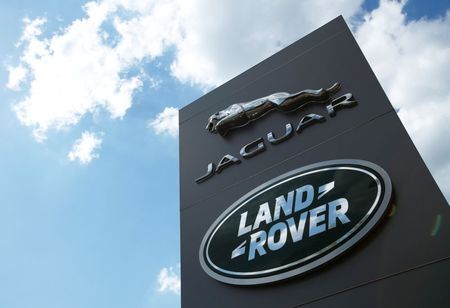
Jaguars, 60% Land Rovers Intends to Go Electric by 2030


The Jaguar cars and around 60 percent of Land Rover models are expected to go electric by 2030. This initiative has been taken as a result of the UK subsidiary of Tata Motors ditches the combustion engine in favour of the zero-emission technology as part of its ‘Reimagine’ strategy.
According to the proposal, that has be skeched by JLR’s newly-appointed chief executive officer, Thierre Bollore, the company would be investing close to 2.5 billion pounds ($3.5 billion) a year into electrification and other related technologies. The Land Rover line would also get its first fully electric model in 2024, and by the following year, all Jaguar models will be entirely powered by batteries.
JLR will “reimagine the business, the two brands, and the customer experience of tomorrow”, Bollore, the former Renault SA chief who joined the UK carmaker in September, said in his maiden public address on Monday.
In a statement, N Chandrasekaran, chairman of Tata Sons, Tata Motors, and Jaguar Land Rover Automotive plc states, “The Reimagine strategy takes JLR on a significant path of acceleration in harmony with the vision and sustainability priorities of the wider Tata group. Together, we will help Jaguar realise its potential, reinforce Land Rover’s timeless appeal, and collectively become a symbol of a truly responsible business for its customers, society and the planet.”
The “Reimagine” plan also aims to deliver simplification and will include consolidation of platforms and models being produced per plant. The company hopes the approach will help rationalise sourcing and accelerate investments in local supply chains. JLR also plans to achieve net zero carbon emissions across its supply chain, products, and operations by 2039.
Furthermore, the statement says that all these initiatives will put JLR firmly on the path towards double-digit Ebit (earnings before interest and taxes) margins and positive cash flow, with an ambition to achieve positive cash net-of-debt by 2025,
“The electrification strategy augurs well for the company and will translate into enhanced appeal for its models globally. Aiming for the double digit-Ebit margin will help JLR reduce debt and improve cash flow," says Mitul Shah, head of research at Reliance Securities.
JLR has had partial victory in selling EVs in the past years. Thus, the company has introduced the new plug-in hybrid variants of models that include the Range Rover Sport and new Defender, but its only fully-electric vehicle is the I-Pace SUV, which it started selling in 2018.
Bollore’s decision to shift JLR away from the internal combustion engine (ICE) is prompted by stricter emissions rules. Global carmakers from Volkswagen AG to Jaguar’s smaller rival Lotus Cars have been veering away from ICE and have announced plans to electrify their offerings. Governments around the world are stepping up incentives for battery-powered vehicles and restricting gasoline cars.